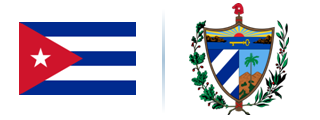Last Update: October 2021


| International Covenant on Economic, Social and Cultural Rights | International Convention on the Elimination of all Forms of Racism | Convention on the Rights of Persons with Disabilities | Convention on the Elimination of all Forms of Discrimination against Women | Convention on the Rights of the Child | International Convention on the Protection of the Rights of All Migrant Workers and Members of their Families | Constituent Agreement of the Development Fund for Indigenous Peoples in Latin America and the Caribbean |
| 28 February 2008 | 15 February 1972 | 6 September 2007 | 17 July 1980 | 21 August 1991 | 20 April 2024 | 13 December 1994 |
| View details | View details | View details | View details | View details | View details | View details |
Year of Latest Observed Constitution |
Social Housing |
Work and Social Security |
Public Health |
Public Education |
Social Development |
Children and Adolescents |
Youth/Young Adults |
Women |
Older Persons |
Persons with Disabilities |
Afrodecendants and Indigenous Peoples |
Migrants |
| 1976 | ||||||||||||
| View details | View details | View details | View details | View details | View details | View details | View details | View details | View details | View details | View details |
Children and Adolescents |
Youth/Young Adults |
Older Persons |
Women |
Peoples with Disabilites |
Afrodescendants and Indigenous Peoples |
Migrants |
Public Education |
Work and Social Security |
Social Housing |
Public Health |
Social Development |
|
| Legal Instrument | Codigo de la Niñez y Juventud | Código de la Niñez y la Juventud (Ley núm. 16) | Ley 24 de Asistencia Social y Seguridad Social de 1979 | n.d. | Ley 4/96 por la que se crea el Consejo Nacional para la Atención a las Personas con Discapacidad | n.d. | Decreto Nº 26; 'Reglamento de la Ley de Migración' (2015) | Ley de Nacionalización general y gratuita de la enseñanza | Ley de Seguridad Social | Ley General de Vivienda | Ley de Salud Pública | n.d. |
| Law | Law | Law | Law | Law | Law | Law | Law |
| Country | Cuba |
| Main authority | |
| Year of creation | |
| Coordinating authority | |
| Members |
| Country | Cuba |
| Main authority | Ministry of Labour and Social Security |
| Year of creation | 1994 |
| Mission | To propose, direct and control the policy of the State and the Government in the matters of work, protection, safety and hygiene of work, social security and prevention, assistance and social work. Its mission is to develop full employment, the strategic management of human resources for the achievement of a high human, economic and social performance, and the new model of social security management, with the aim of being an institution recognized as advanced in the management of full employment, human capital and social security for all. |
| Incumbent | Marta Elena Feito Cabrera (2019) |
| Population segment | Children and Adolescents |
Youth/Young Adults |
Older Persons |
Persons with Disabilities |
Women |
Migrants |
| Main protection mechanism | Dirección de Menores del Ministerio del Interior | Dirección Nacional de Atención al Adulto Mayor | Consejo Nacional para la Atención a las Personas con discapacidad (CONAPED) | Comite Nacional-Federacion de Mujeres Cubanas (FMC) | Dirección de Identificación, Inmigración y Extranjería | |
| Legal Instrument | Código de la Familia de 1975 Código de la Niñez y la Juventud de 1978 | Código de la Niñez y la Juventud (Ley núm. 16) | Ley No. 41 “Ley de La Salud Pública”, de 13 de julio de 1983. | Ley 4/96 por la que se crea el Consejo Nacional para la Atención a las Personas con Discapacidad | Decreto Nº 26; 'Reglamento de la Ley de Migración' (2015) |
|
Technical-operational dimension | |||||||
| Unique Registry of Participants | Sistema Integrado de Administración Financiera /b | Sectoral Plan for Social Development | Transparence - system for accessing public information from the State | Integrated Social Information System |
Evaluation mechanisms for social programs |
|||
General |
Sectorial |
General |
Sectorial |
|||||
| Ministry of Labor and Social Security | ||||||||